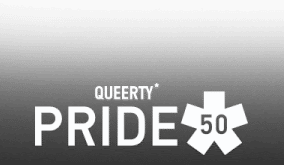
It’s not easy being beautiful. Or is it?
That’s the takeaway from a new study published by the American Psychological Association that has found hot people have a much harder time landing entry level jobs than average-looking or downright ugly ones.
“Our research suggests that attractive people may be discriminated against in selection for relatively less desirable jobs,” the study’s lead author, Margaret Lee, says in an accompanying media statement.
Related: Single Pastors Being Discriminated Against In Job Hiring For Being Unmarried, Possibly Gay
How about we take this to the next level?
Our newsletter is like a refreshing cocktail (or mocktail) of LGBTQ+ entertainment and pop culture, served up with a side of eye-candy.
For the study, Lee and her colleagues conducted a series experiments with over 750 participants, who were asked to look at the resumes and photos of two potential applicants–one attractive and one unattractive–for various jobs. They were then asked who they would hire and why.
The vast majority of participants favored the unattractive people over the attractive ones when it came to hiring for entry level positions.

“In the selection decision for an undesirable job, decision makers were more likely to choose the unattractive individual over the attractive individual,” Lee says.
But before you strike up the violins for those seemingly unemployable attractive people, you should know that the reason they weren’t selected was because they were given the “good” jobs (project manager, manager). Meanwhile, the uglies are given the lower-paying grunt work (warehouse worker, housekeeper).
So why is this? Lee explains that in the eyes of many employers, a person’s attractiveness is often correlated with their ambition. Hot people look like they’d be more high-maintenance, and no one in their right mind wants to hire an ambitious, high-maintenance person to do thankless, unrewarding work.

“Participants perceived attractive individuals to feel more entitled to good outcomes than unattractive individuals, and that attractive individuals were predicted to be less satisfied with an undesirable job than an unattractive person,” Lee says.
The study’s co-author, Madan Pillutla, adds, “Participants thought that attractive individuals would want better outcomes … Therefore participants predicted that attractive individuals would be less satisfied, they reversed their discrimination pattern and favored unattractive candidates when selecting for a less desirable job.”
Related: Fired Google employee says being conservative today is like being gay in the 1950s
Don't forget to share:





















































Heywood Jablowme
Yes, we do have that problem. Could you get me a cup of coffee, please? Thanks, kid. Btw you look very cute today. LOL.
Ummmm Yeah
Yeah they get brought in at a higher level then they are capable of. Then they kiss ass and become management which they are even less capable of doing.
marjoriecohen855
I found a great site that focuses on stay at home mom’s complete guide to gaining a serious amount of money in very little time. While being able to earn an passive income staying home with your kids. If you are someone who needs more money and has some spare time, this site is perfect for you. Take a look at…
33333333333
…..????????????Trump”s New Opprunuties See Here